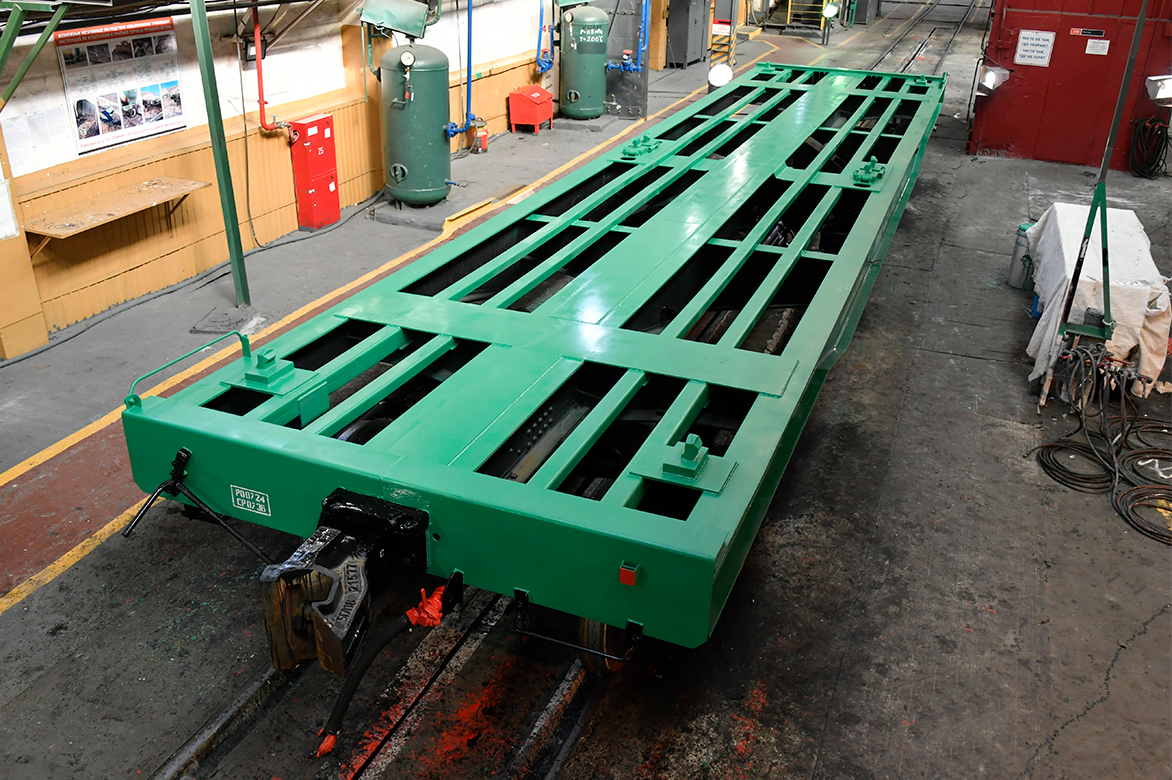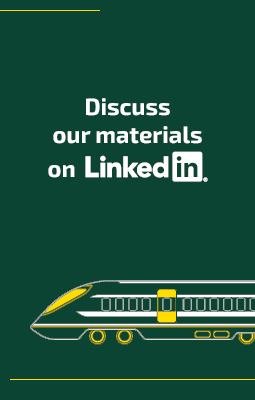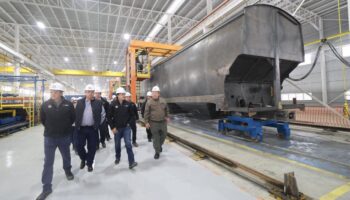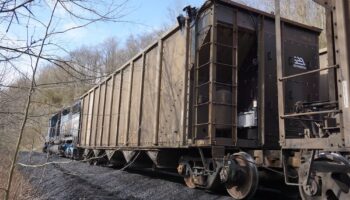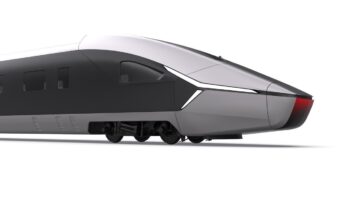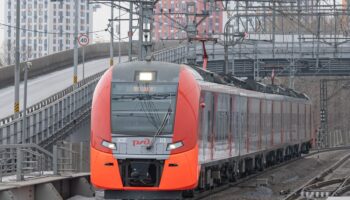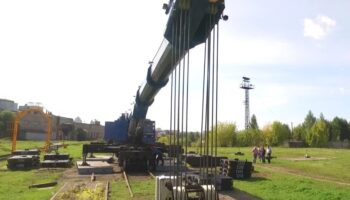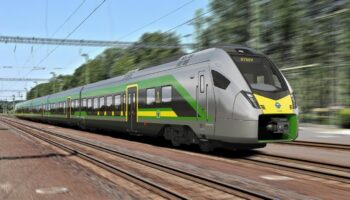Russia: The plant’s load may grow stronger on the back of expected contracting volumes. At the same time, the company faces restrictions related to the tapered rolling bearings supply.
Alexandr Potapov, CEO of Uralvagonzavod (UVZ), announced a serious workload with the freight car orders at a meeting with the governor of the Sverdlovsk region Yevgeny Kuyvashev, held on March 30. “We have a very serious workload this year. An order for 17,000 gondola cars has now been confirmed. Moreover, a rather serious contract for flatcar delivery is being prepared now, and in this regard, we are forced to partially readjust our production facilities”, the head of UVZ is quoted on the information portal of the region.
Also last week, UVZ reported that the plant was reconfiguring the conveyor for the rolling stock production required under the orders. In this regard, a number of employees were sent on short-term leave with the preservation of 2/3 of their wages.
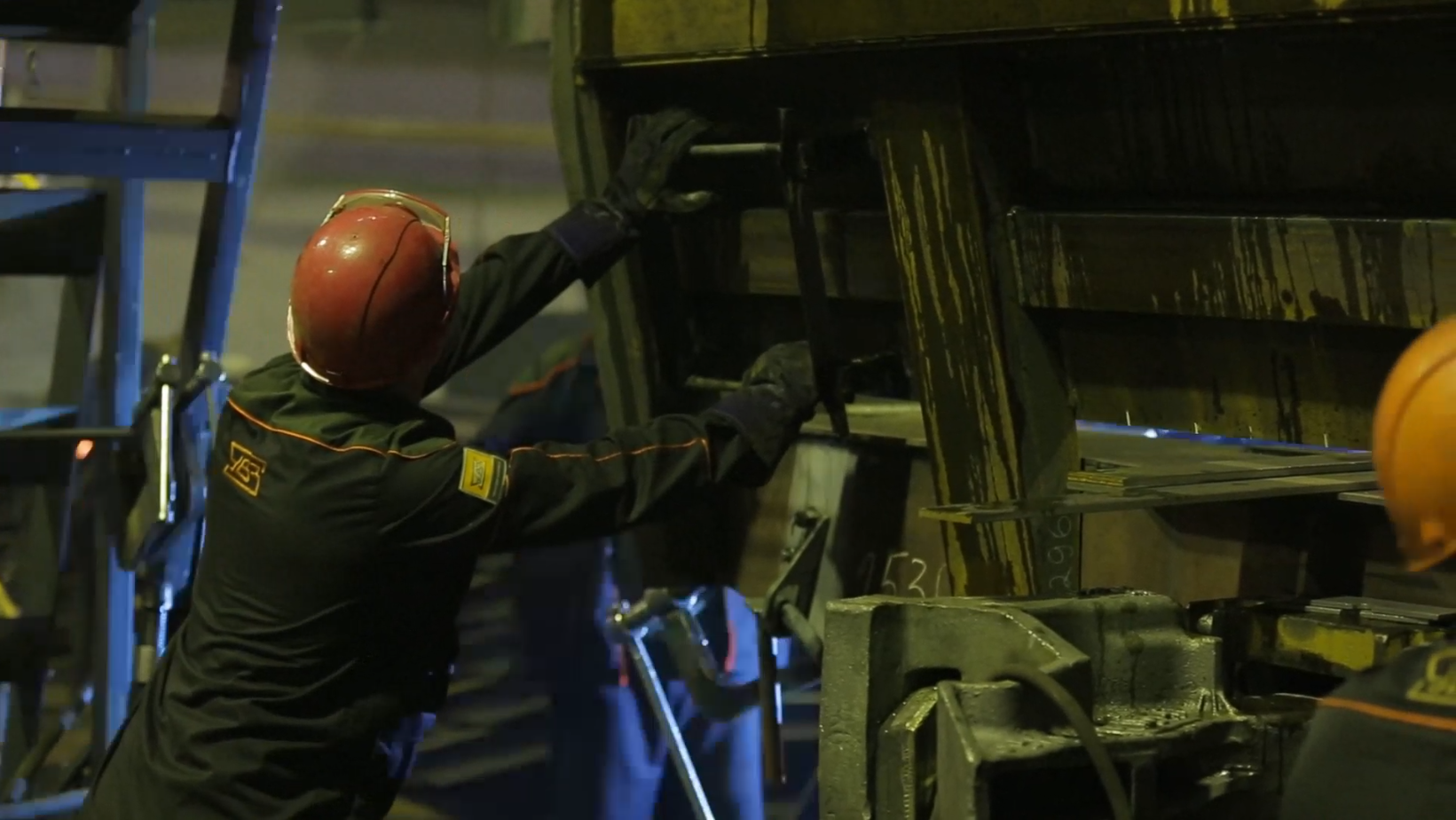 At the production of freight cars in UVZ. Source: Rostec
At the production of freight cars in UVZ. Source: Rostec
Earlier, in 2020, UVZ faced a crisis in the production of freight cars. Then, amid the impact of the Covid-19 pandemic and falling demand for gondola cars in Russia, the plant sold 10.7 thsd cars (-40% compared to 2019). The trend changed with the return of Boris Myagkov, who had already worked in UVZ until the spring of 2019, and then moved to another major Russian railcar manufacturer, United Wagon Company (UWC). Then, from the beginning of 2021, Myagkov was the interim CEO of UVZ-Trans subsidiary, then an adviser to UVZ CEO, and in April he was appointed UVZ’s Deputy CEO for nonmilitary production.
The situation began to improve: according to UVZ-Trans, already in January-February 2021, the manufacturer’s share in the Russian freight car market was the largest and amounted to 22.9%. As to the Infoline data, last year UVZ produced 13.8 thsd railcars (+28.4% by 2020), which is equal to 21.9% of the total output in Russia. In the world in terms of production of freight cars in 2021, according to analysts, UVZ ranks 4th, behind CRRC, UWC and Greenbrier Companies
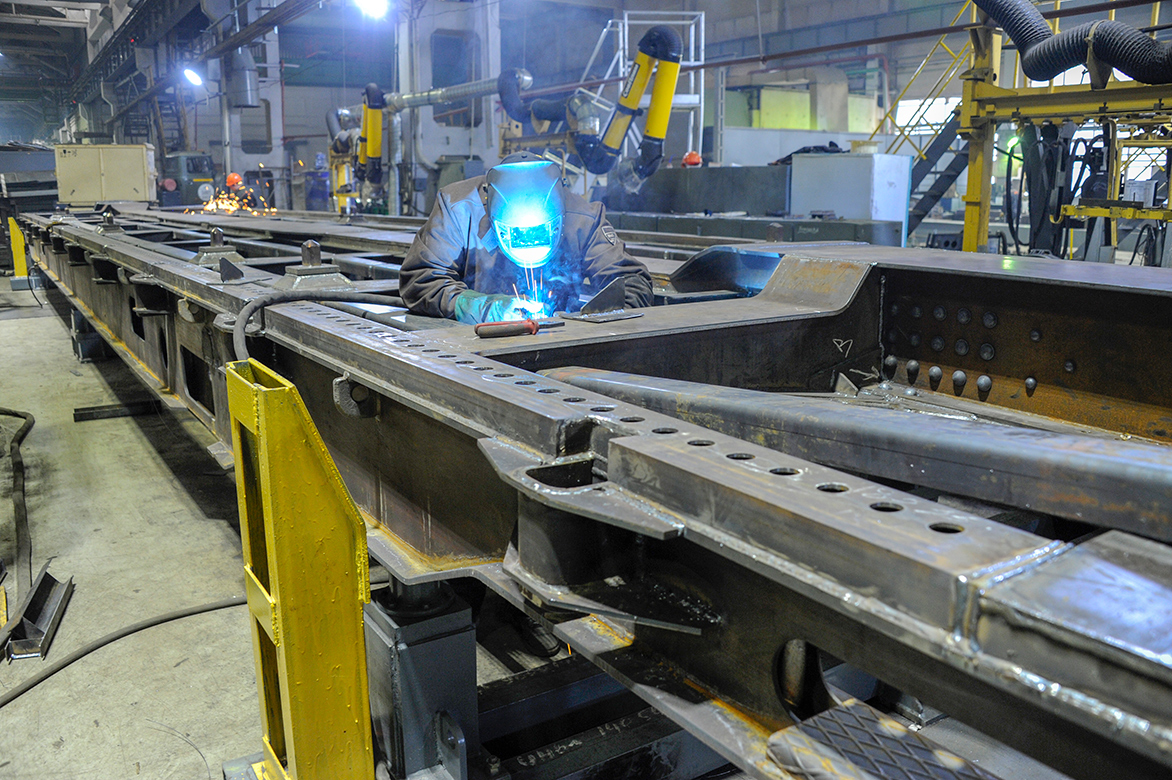 Flatcar production. Source: UVZ
Flatcar production. Source: UVZ
At the same time, back in 2021 Boris Myagkov announced in an interview with RBC that half of the UVZ gondola car production capacities would be converted to the production of flatcars. “This decision was made for two reasons – the global trend for container transportation and the overproduction of gondola cars in Russia”, he said. Then it was noted that the plant plans to increase the flatcars production to 5-6 thsd units per year in the coming years.
UVZ is actively upgrading production and developing new products: the share of costs for technical re-equipment in 2021 increased in the total UVZ investment program to 40%. In particular, UVZ spent 1.7 bln RUR ($23 mln USD) to two dozen projects related to the preparation for the production of special equipment, as well as the development and production of nonmilitary products. More than 50 projects worth 0.5 bln RUR ($6.8 mln USD) were aimed at replacing worn-out equipment, improving working conditions, etc.
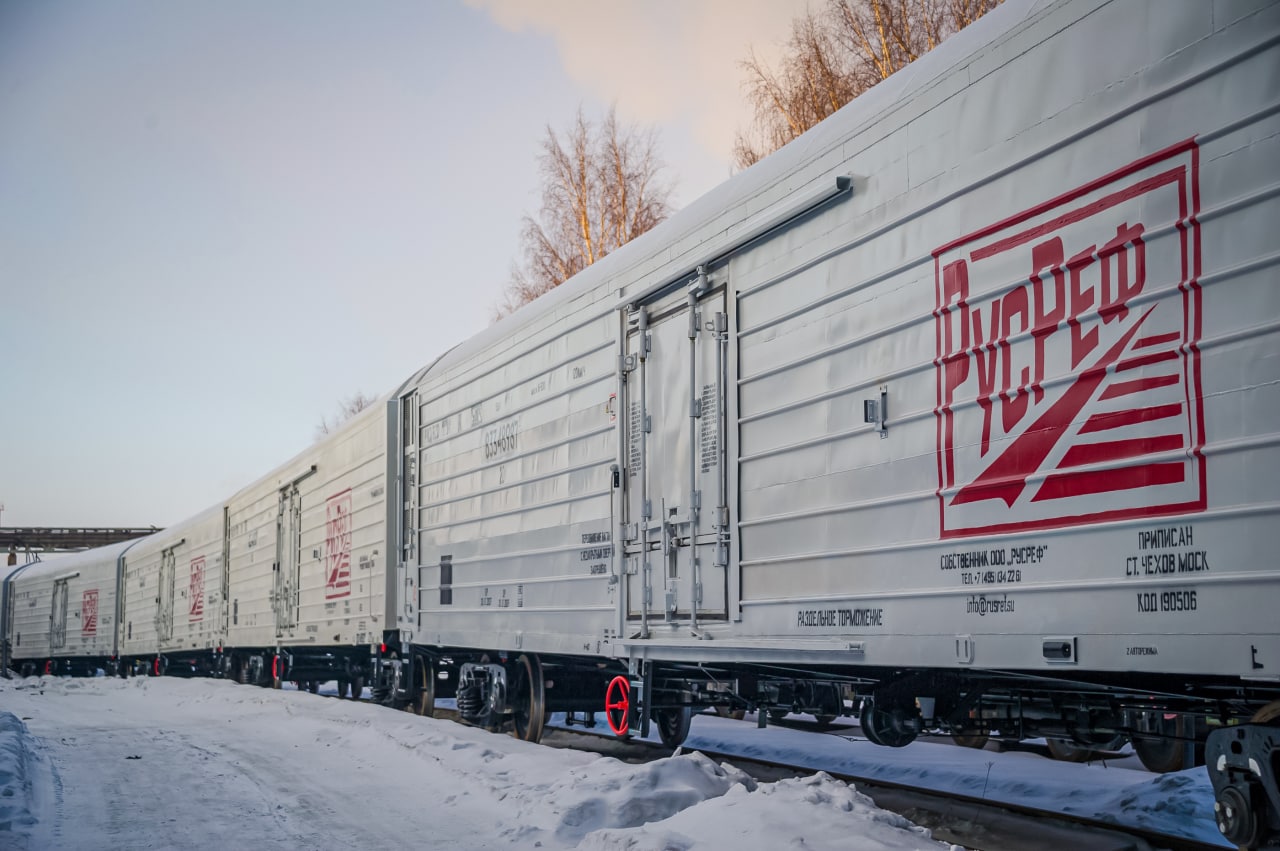 Refrigerated wagons manufactured by UVZ. Source: UVZ
Refrigerated wagons manufactured by UVZ. Source: UVZ
In particular, as the head of the press service of UVZ Nikolay Vasiliev reported to the Railway Equipment Journal, in 2021 the production of a 40 ft 13-192-03 container flatcar on 18-555 bogies with 23,5-t axle load and a design speed of 120 km/h was mastered. At the beginning of 2022, an experimental batch of 8 refrigerated wagons in different configurations was delivered to the RusRef company. As RusRef’s development director Maxim Korneev notes, in the future the company expects deliveries of 30 such wagons per month.
Significant work is being done to develop the Center for Research and Testing of Materials (CRTM), which analyses various materials used in the metallurgical production of UVZ in order to find alternative suppliers, reduce costs and achieve other economic effects. As Konstantin Belousov, director of CRTM, says in an interview with the Mashinostroitel newspaper, a site for life testing of bogies cast parts is being created in the division, 21 pieces of equipment have already been installed, and it is planned to purchase 14 more units in 2022.
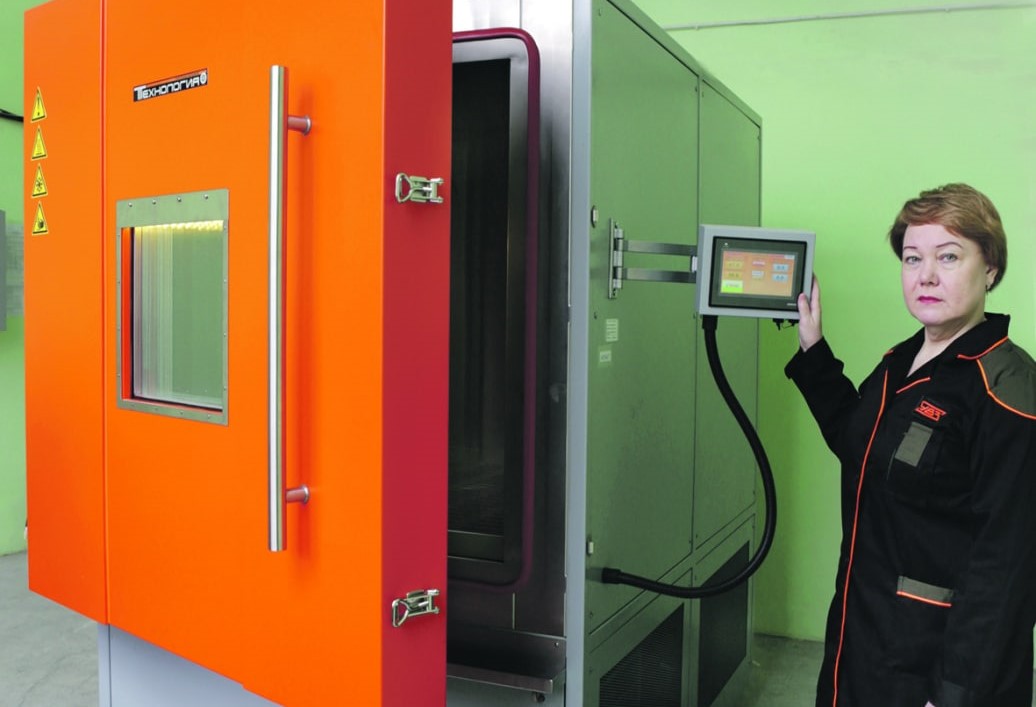 Climatic chamber in the UVZ center for research and testing of materials. Source: UVZ
Climatic chamber in the UVZ center for research and testing of materials. Source: UVZ
However, the risk of disruption in deliveries of tapered rolling bearings due to the foreign companies actions against the backdrop of the situation in Ukraine may become a limitation for the implementation of production plans for both UVZ and other car builders. Recently, Amsted Rail announced its withdrawal from Russia and from EPK-Brenсo, the joint venture with EPK for the production of bearings in Saratov. In turn, SKF previously announced the suspension of imports to Russia, however, it was noted that the plant in Tver will continue to operate until further notice.
UVZ buys EPK-Brenco and SKF tapered rolling bearings to produce railcars with 25-t axle-load. In particular, at the beginning of the year, UVZ procured 49 thsd tapered rolling bearings (equal for the assembly of 6.1 thsd cars) from these manufacturers for 1.4 bln RUR ($18.1 mln USD). At the moment, the company does not comment on the situation of its bearings stocks, noting that it is being analysed on a daily basis. In turn, ROLLINGSTOCK Agency sent an official request to the Ministry of Industry and Trade of Russia for an assessment of the situation and information on the measures that the government body is developing.



